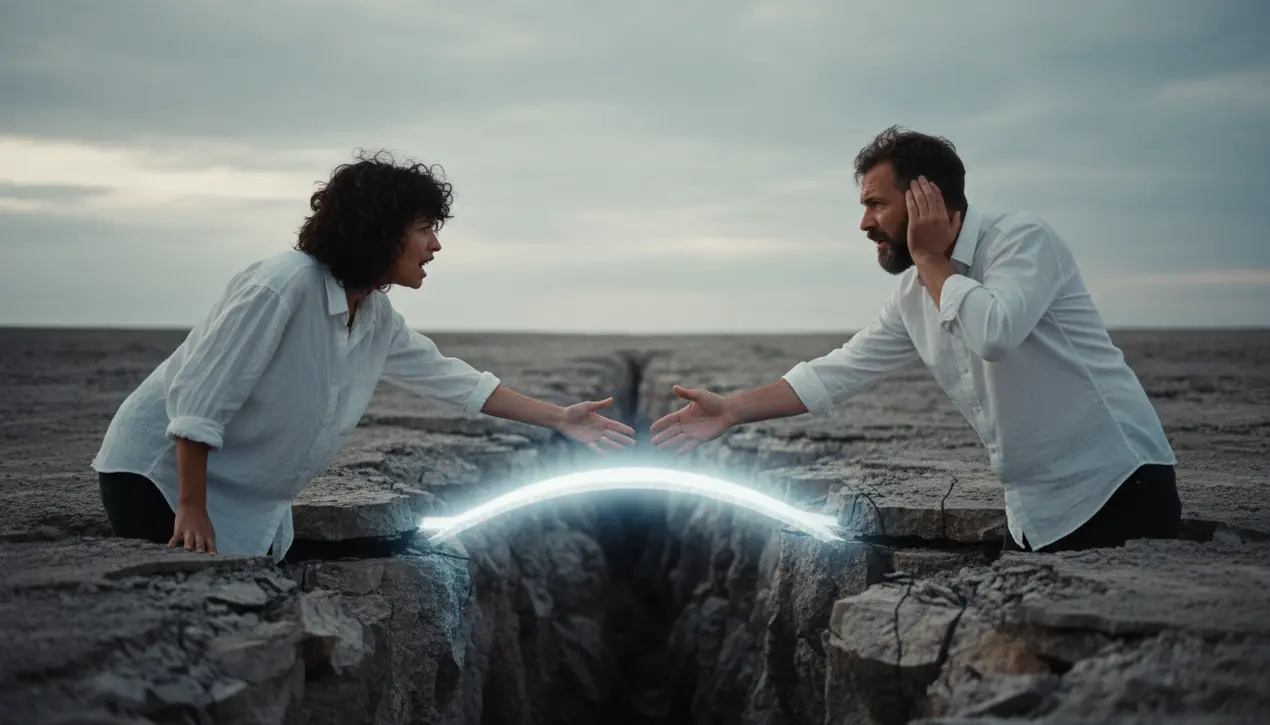
OthereducationEducational Policy
The Art of Repair: How to Bridge Communication Gaps
LA
Laura Bennett
2 hours ago7 min read
It begins with a spark—a moment of profound connection where two people feel truly understood. They build a shared world, a fragile structure of mutual understanding.Then, the tremor hits. A simple conversation about chores becomes a battle over respect.A forgotten message spirals into a story of neglect. They realize they are experiencing the same moment in two entirely different realities, and the structure they built groans under the strain.This is the terrifying moment of a communication breakdown, a fracture that plagues not just romance, but friendships, families, and workplaces alike. The desperate question that follows is universal: how do we fix this? The answer, according to a pioneering psychologist, lies not in proving your point, but in a radical act of listening.In 1951, as global tensions highlighted the catastrophic cost of failed communication, humanist psychologist Carl R. Rogers presented a solution.He argued that the antidote to such breakdowns isn't about winning an argument or establishing your reality as the correct one. The fix, he proposed, is a courageous and counterintuitive practice: empathetic listening.This is not passive hearing. It is an active, deliberate effort to step into the other person's world, to see the situation from their internal frame of reference without immediately layering on your own judgment, defense, or rebuttal.The goal is to create a psychological sanctuary where the other person feels safe enough to be vulnerable and express their 'different experience. ' As one seasoned marriage counselor noted, breakthroughs often occur not when a couple finally agrees, but when one partner truly hears the fear or hurt behind the other's anger for the first time.This requires a temporary suspension of the self—setting aside your own narrative to fully receive another's. Rogers termed this 'unconditional positive regard.' In our hyper-connected, opinion-saturated world, this skill has dangerously atrophied. We are trained to broadcast, debate, and refute, but rarely are we taught to listen with the intent to understand rather than to reply.The consequences of this deficit are visible everywhere, from polarized political discourse to fractured personal relationships. The repair begins not with a clever retort, but with a simple, vulnerable invitation: 'Help me understand what this is like for you. ' It is in that space—in the deliberate and difficult effort to cross the chasm not with a leap of assumption, but with the careful construction of a bridge made of genuine curiosity—that broken communication finds its most lasting fix.
#communication
#psychology
#Carl Rogers
#conflict resolution
#relationships
#featured
Stay Informed. Act Smarter.
Get weekly highlights, major headlines, and expert insights — then put your knowledge to work in our live prediction markets.
Related News
Comments
Loading comments...
© 2025 Outpoll Service LTD. All rights reserved.